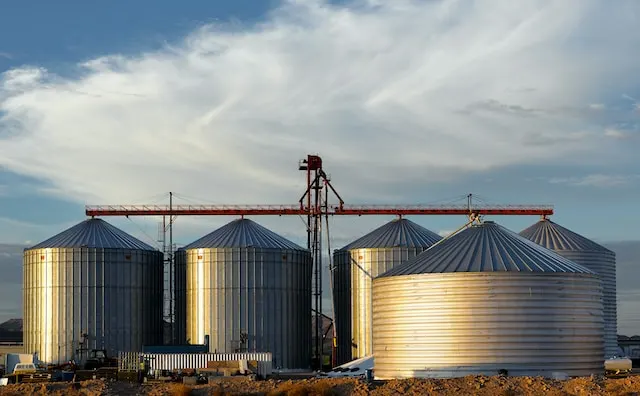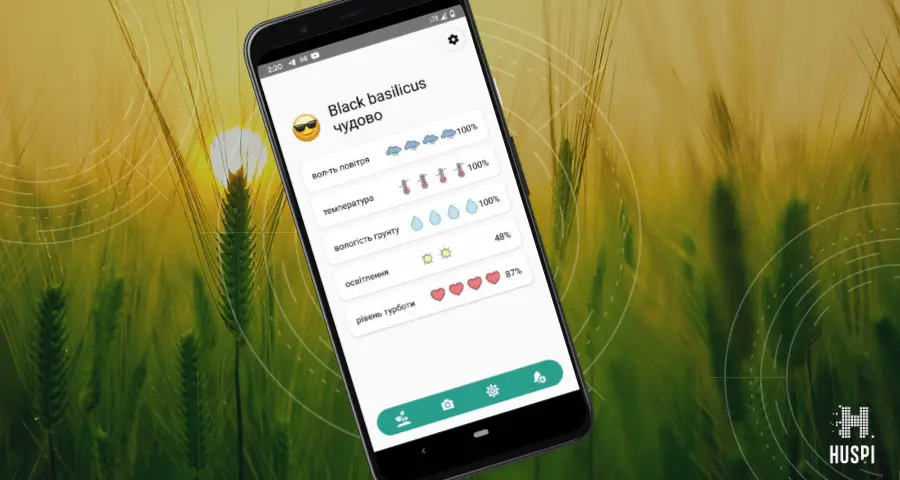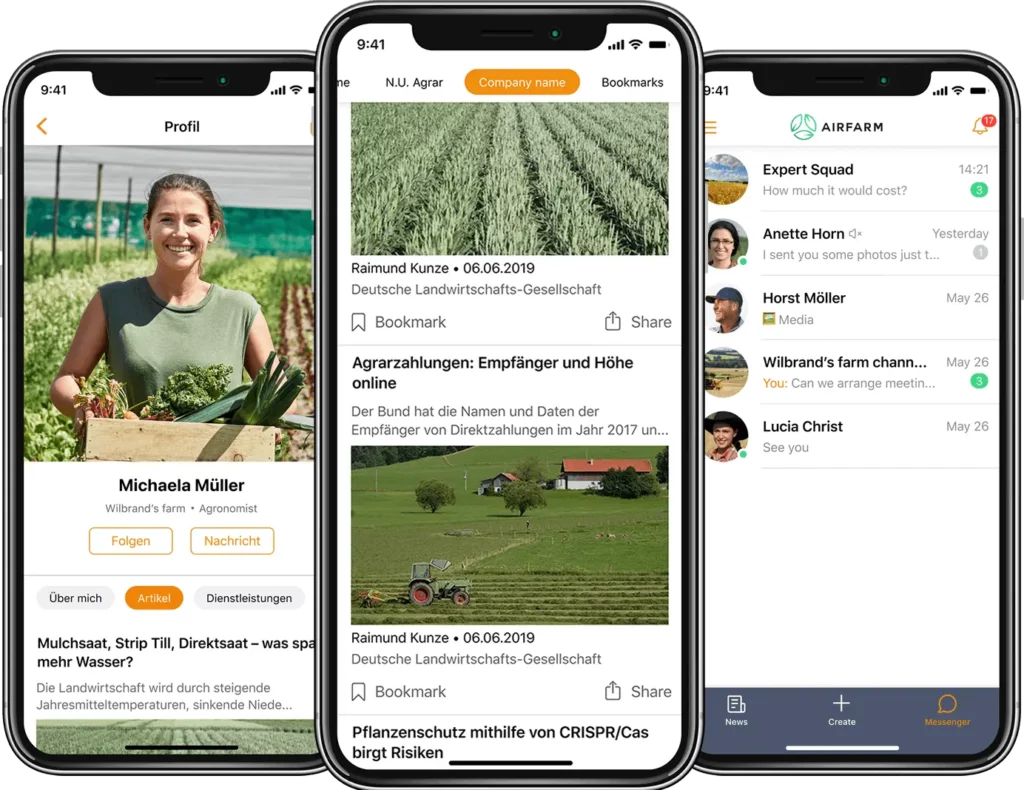1.5 billion hectares of land are currently being used for agriculture, which translates into roughly 11% of the Earth’s surface. Is that all the land that can be used for farming or are there missed opportunities? And if people do strive for more crop production, how to make sure this process will be sustainable and not hurt the environment and future generations?
In this article, we’ll take a look at the technological part of agriculture and how modern innovations like artificial intelligence, the Internet of Things, and many others help the industry and the world.
What is sustainable farming?
On one hand, the short-term goal for agriculture seems to be “to get as many crops as possible” to feed all the people, especially with all the new technologies. However, this type of thinking is hurting the environment and nature around us. In our desire to get more and more and more, our planet has been suffering a lot and, as a result, we have been forced to create new ways of farming as well.
Another side-product of such a greedy race to get more has been the fact that we end up producing a lot more than we need and can consume. According to the Food & Agriculture Organization (FAO) of the United Nations:
An estimated 1.3 billion tonnes of food is wasted globally each year, one-third of all food produced for human consumption.
UN Food & Agriculture Organization
Yikes. How can we fix that?
Besides more optimized food distribution, sustainable farming is also necessary to ensure that our children and grandchildren will be able to eat something.
What is sustainable farming? The main idea is that sustainable agriculture should focus not simply on getting more in terms of food and textile needs, but instead on understanding the ecosystem services and being mindful of the lands, fertilizers, and technologies that are used to ensure future generations’ ability to meet their needs.
Sustainable agriculture is not a new concept. Even in the Bible, there is a direct commandment to let the land rest every seventh year, for example:
But in the seventh year, the land is to have a sabbath of rest, a sabbath to the LORD. Do not sow your fields or prune your vineyards. Do not reap what grows of itself or harvest the grapes of your untended vines. The land is to have a year of rest. (Leviticus 25)
Does that mean the Israelites needed to plan a few years in terms of food storage and use? Yes. However, with wise planning, it was possible, and the land got its rest.
We don’t live in the Old Testament times, but the principles remain that land cannot be constantly used without undergoing irreparable changes (just like anything else, for that matter.) And by now, more and more ecologists are raising alarm about various agribusiness issues that harm the land instead of taking care of it.
How technology can help agribusiness?
Modern technologies change the face of many industries and farming isn’t an exception. Besides the fact that there is a lot of physical machinery involved, there are also various software solutions that are tailored to manage many nuances of the farming business.
In this article, we’ll consider three cases where technologies simplify doing business for agricultural companies.
Better Management & Monitoring: Preventing Silo Fires

When I hear of “spontaneous combustion,” the first thing that comes to mind is some sort of paranormal activity. Maybe that’s because I watched too many sci-fi movies and mockumentaries about ghosts and such. However, spontaneous combustion in grain silos is a serious real-life issue.
The fermentation process in the silage is done by a special sort of bacteria. As forage crops ferment, heat is produced by those bacteria at work. Usually, there is no air in the silo, but in case the oxygen finds its way in and the humidity level is low, the reproducing rate for these microorganisms starts to increase and heat is generated faster than normal. Without close monitoring, this heat increase can lead to serious fires, damaging the harvest, and properties, and even causing deaths during the fight with the fire.
One of the IoT projects we have been acting as consultants for was focused on solving this precise issue. The mix of hardware and software presented a branched system with sensor modules that would receive temperature and humidity readings from up to 10K sensors simultaneously. The real-time mode allows for a timely reaction to urgent issues.
As a result, the harvest’s management is optimized and it helps to use the resources efficiently, without the need to overstock for “just in case” times.
Conscious Consumerism: Greenwitch Case

Conscious consumerism is a very important trend. The idea is to make purchasing decisions that have a positive effect on the environment as well as social and economic factors.
We have heard the stories of how agriculture causes climate change and affects biodiversity. The greed to get more money right now often stands in the way of saving natural resources, but if more people practice conscious consumerism, this will help the situation.
When you go to the supermarket, you often end up buying a lot more than you planned, simply because you purchase packaged products. And even if the product isn’t packaged, you can’t just get a couple of parsley or dill twigs. So you buy a handful, and, I don’t know about you, but at my household, a part of it always goes bad because I simply don’t have the time to use it.
One of the ways out of this situation is growing your herbs or even planting a small garden if you have space for it. However, again, if you don’t have green thumbs or if you just have a lot on your mind, you might forget to water the plants or make sure they have enough sunlight.
The solution? Once again, there is a mixture of hardware and software that comes to the rescue. There is a project currently in the process of development called GrowBox. The idea is that it’s a physical box with special lamps and sensors for humidity, temperature, and lighting. With the help of a mobile application, one can easily monitor and adjust the “weather” conditions data for the plants from his or her cell phone.
Read more about GreenWitch mobile app here.
Simplifying Communication: The Airfarm Case

Another advantage of the interconnected world we live in is the means of communication available to us. For example, one of our clients – Airfarm – has created a comprehensive platform for information sharing between high-tech farming companies.
They created an extensive hub for agricultural information in the German language to help farmers easily find information on such topics as crop prices, the latest developments in smart hardware for agricultural needs, updates on pest control, or news about specific types of crops or fertilizers, for example.
While there are no IoT features or artificial intelligence involved, this project’s goal is to make sure the work is done in the best way possible. With Airfarm’s help and information, it’s easier for agricultural companies to create better system design solutions for biogas, for example, or intelligent food production systems.
To learn more about this company visit the website here.
Conclusion
We all depend on each other and we all want future generations to thrive. This means we should already take steps toward sustainable agriculture and sharing economy principles, where we take what we need and share the rest with those who need it also. I know it sounds a bit magical or naive, but it’s possible. By taking care of future generations, we’ll also take care of ourselves as we grow older.
Looking for a digital solution to simplify your business?
Wondering about time-to-value?
Request a no-obligation discovery call and receive a preliminary estimate tailored to your KPIs.


